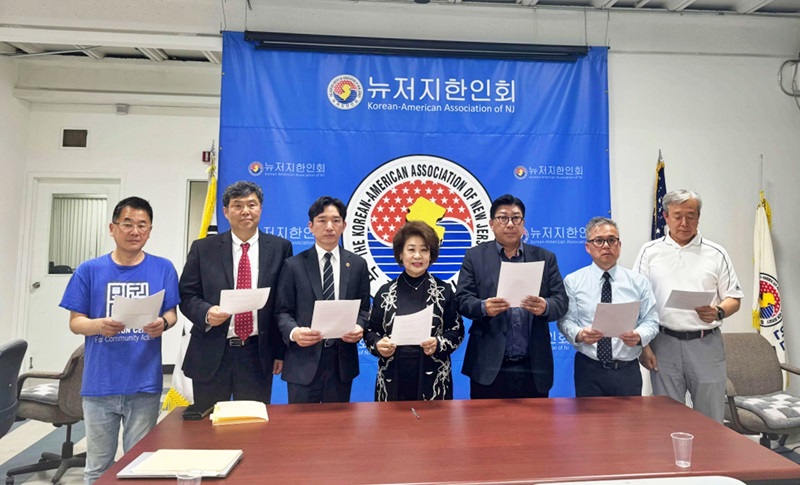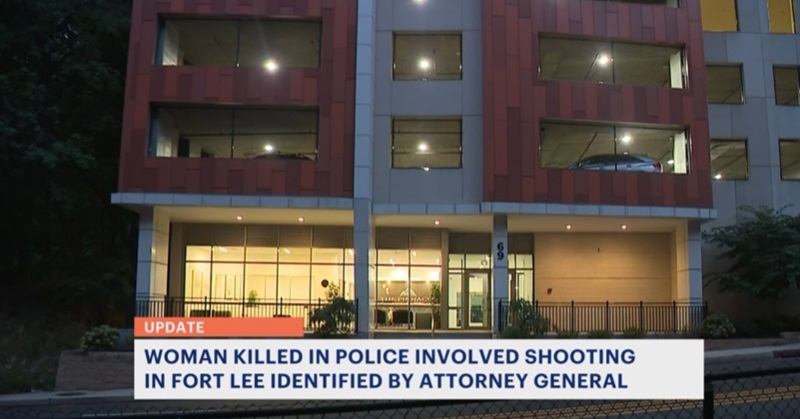Another harrowing tragedy has unfolded in the United States, where a young Korean-American woman in her 20s, suffering from bipolar disorder, was fatally shot by a police officer in New Jersey.
This appalling incident occurred just three months after the death of Yong Yang, a Korean-American man with mental-health issues, who was similarly gunned down by police in Los Angeles.
The Korean-American community, alongside all who believe in justice, is outraged by the brutal and excessive force displayed by the police in these cases. Citizens who sought help in their most vulnerable moments were instead met with deadly violence by the very authorities sworn to protect them. Non-lethal options, which should be the standard in such scenarios, were shockingly ignored, resulting in irreversible, tragic outcomes.

According to reports from the Korean American Association of New Jersey, the victim’s attorney, and the New Jersey District Attorney’s office, 25-year-old Victoria G. Lee was killed by a Fort Lee police officer who responded to a call at the Pinnacle apartment on Main Street in Fort Lee, near the George Washington Bridge, at around 1:25 a.m. on July 28.
Victoria’s family, deeply concerned about her worsening bipolar disorder, did what any family would—they called 911 for an ambulance to transport her to the hospital where she regularly received care. What should have been a routine request for medical assistance quickly spiraled into a nightmare when the 911 operator, citing protocol, insisted that police accompany the paramedics.
Upon learning that police officers would arrive, Victoria, who had endured traumatic interactions with law enforcement in the past due to her mental-health crises, resisted going to the hospital. Out of fear, she picked up a small folding pocket knife, a harmless tool she used to open packages. Her family, acutely aware of the situation’s sensitivity, attempted to de-escalate the situation by asking her brother, Chris, to make a second call to 911, pleading for the police not to come. But it was too late—the police were already on their way.
When the officers arrived, the paramedics were conspicuously absent. The family, understandably terrified that the situation might intensify chose not to open the door, hoping to calm Victoria down. Chris walked out and tried to explain the delicate situation to the officers outside, but his pleas were disregarded. The officers, fixated on their protocol, questioned who was inside and who had the keys. When they learned that Chris didn’t have the keys, they forcefully pushed him aside and began breaking down the door.
As the door shattered, so too did Victoria’s sense of security. Her anxiety reached a peak, and her mother, desperate to avoid a violent confrontation, shouted through the door, “Please do not come in.” Her pleas were ignored. The officers broke down the door and entered the apartment, where Victoria, now clutching a large 19-liter water jug out of sheer terror, was immediately shot in the chest. Despite being rushed to the hospital, she was pronounced dead shortly after.

Victoria’s mother bore witness to this unspeakable horror as her daughter, a woman in need of care, was killed before her eyes. The police later claimed that Victoria was holding a knife at the time of the shooting, but her family disputes this. They insisted that the knife was on the floor, not in her hand, when the officers forced their way into the apartment.
The family further asserts that Victoria held the water jug out of fear due to the noise of the door being broken down, not as a threat to the officers. Despite her clear lack of intent to harm, she was shot, her life brutally taken by those who should have been her protectors.
A week after the incident, the New Jersey District Attorney’s office revealed the name of the officer who fired the fatal shot, Tony Pickens Jr. It announced an investigation to determine whether his actions were lawful. Yet, the investigation remains shrouded in secrecy, with crucial details withheld from the public under the guise of an ongoing inquiry.
On August 7, the Korean American Association of New Jersey, alongside the Lee family’s attorney, held a press conference demanding the release of the bodycam footage and a transparent investigation by state authorities. The association voiced the collective disbelief and fury of a community that feels betrayed by those meant to serve them, stating, “It is incomprehensible that the police used lethal force in response to a family’s call for an ambulance to transport their loved one to the hospital. This is a tragic event that defies common sense.”
The role of the police is to protect and serve, not to inflict harm on those who are most vulnerable. This tragic event underscores the urgent need for comprehensive reform in how law enforcement interacts with individuals experiencing mental-health crises. It is not only a failure of protocol but a failure of humanity.
By Mooyoung Lee lee.mooyoung@koreadaily.com

![Asian Voters’ Support for Trump Rose to 40%, Pew Survey Shows U.S. President Donald Trump delivers an address to the nation accompanied by U.S. Vice President JD Vance, U.S. Secretary of State Marco Rubio and U.S. Defense Secretary Pete Hegseth, at the White House in Washington, D.C., U.S. June 21, 2025. [REUTERS]](https://www.koreadailyus.com/wp-content/uploads/2025/06/0626-Trump-100x70.jpg)


![Korean Woman Deported After Using Altered Passport Name Old and new Korean passport [JoongAng Photo]](https://www.koreadailyus.com/wp-content/uploads/2025/06/0630-passport-100x70.jpg)